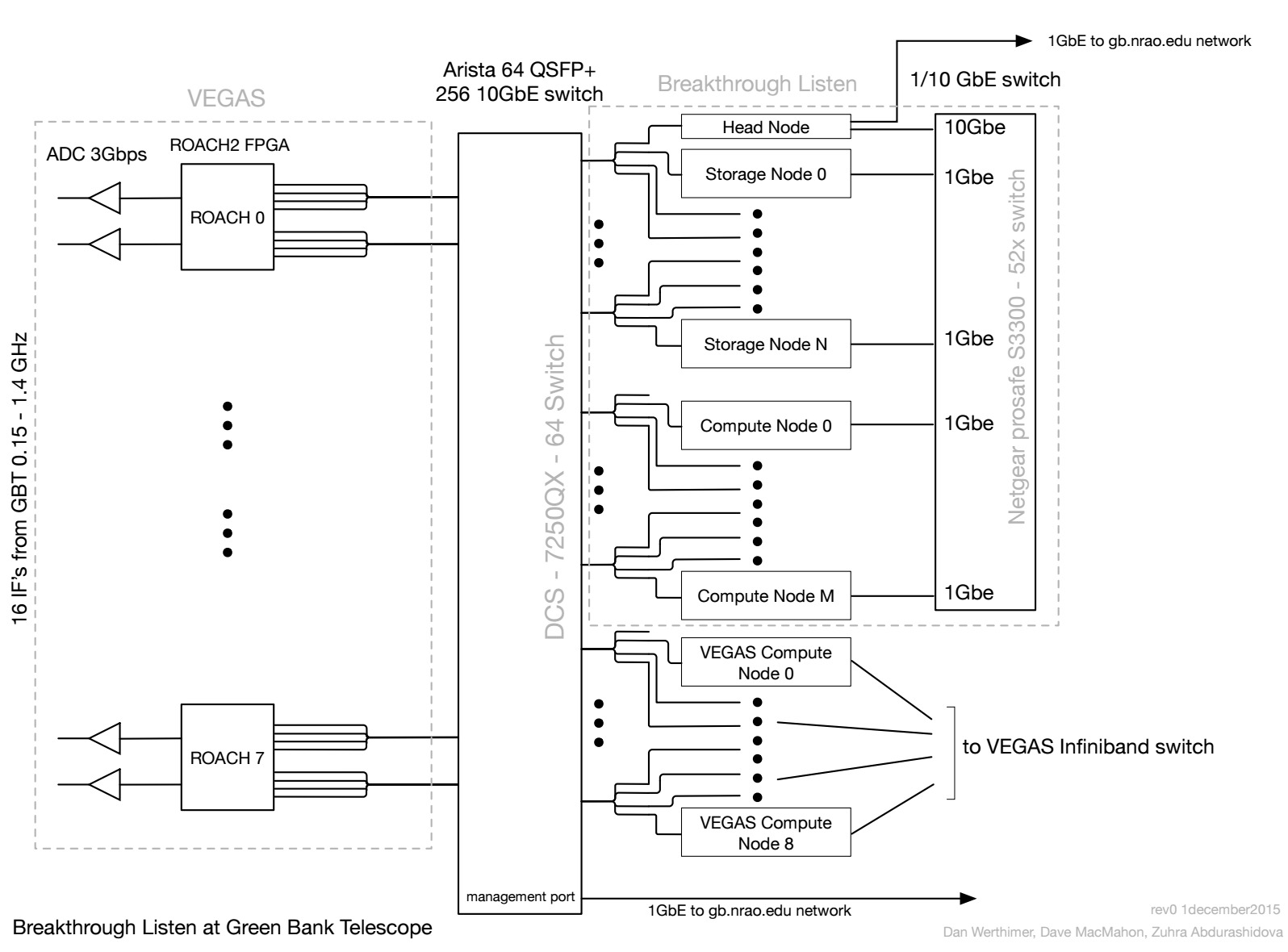The Breakthrough Listen project is making its digital recorder backend at the Green Bank Telescope available for a minimum of 50 hours of shared-risk observations each semester. The instrument consists of a cluster of 64 Titan X and 1080 GPU-based servers capturing 8-bit baseband voltages over up to 10 GHz of instantaneous bandwidth in two polarizations.

Data rates are typically tens of TB / hr but a pipeline is available to generate spectra with adjustable frequency (> 3 Hz) and time (> 350 us) resolutions, with possible science applications including fast radio transients, pulsar observations, stellar flares, SETI, etc.
System temperatures between 20 and 30 K yield typical sensitivities in a single 3 Hz wide channel of around 140 mJy rms for a 15 minute observation.
Observations are currently routinely conducted in L, S, C, and X bands; we may also be able to support observations using other receivers on request. The Breakthrough Listen team runs dedicated observations for 20% of the time on the GBT, typically in runs of up to 12 hours. The telescope is controlled using standard ASTRID scripts. The Listen backend is launched from a simple command line call on our head node and begins streaming the raw voltages to disk on our compute nodes.
For most Listen observations, we generate and archive filterbank files with 2% of the volume of the raw data, before deleting the raw voltages from disk. In certain circumstances we retain the raw voltages for more detailed analysis.
Guest observers wishing to use the Breakthrough Listen backend may choose to run their raw data through the GPU-based spectroscopy pipeline on our hardware before transferring a few TB of reduced files offsite over the internet. Observers who wish to retain raw voltages should be prepared to ship their own servers (typically with hundreds of TB of free disk space) to and from GBO.
Long observations should be split into runs lasting no longer than 8 hours, with at least 24 hours between runs.
Potential users should familiarize themselves with the capabilities of the instrument by reading the instrument description paper, MacMahon et al. (2018). Further information about the pipeline and data formats may be found in Lebofsky et al. (2019).
Before submitting a proposal, proposers must obtain permission from the Breakthrough Listen team at Berkeley SETI Research Center. If you are interested in proposing, please email Breakthrough Listen GBT Project Scientist Steve Croft (scroft@astro.berkeley.edu) and copy David MacMahon (davidm@berkeley.edu) with an outline of your planned observations. MacMahon and Croft should be added as co-Is to proposed observations, to enable them to keep track of use of the instrument and to provide appropriate technical support. Publications resulting from use of the Listen instrument are not required to include members of the Listen team as co-authors (although they are welcome to do so as appropriate) but are requested to cite MacMahon et al. (2018). Email Steve and David
The team at Berkeley will consult on proposal preparation and data analysis. Any data acquired using the backend will be proprietary to the proposer per the standard GBO policies. Successful proposals will be allocated time from the GBT general observer pool, not from the dedicated Breakthrough time. Proposers are not required to share their data with the Listen team, but where observations suitable for a piggyback SETI search are obtained the team would welcome the opportunity to run their pipeline on the data at the proposer's discretion.